This year, more than 13 million students in China took the college entrance exam (gaokao) from June 7 to 10. Candidates took compulsory subjects including Chinese, mathematics, foreign languages, and 3-4 elective subjects, depending on the major they wanted to apply for at university.
From the stage when candidates are preparing for the final exam until the day before the exam, the market for products related to the exam is very active. This year, the most notable service is the “test prediction” service using AI.
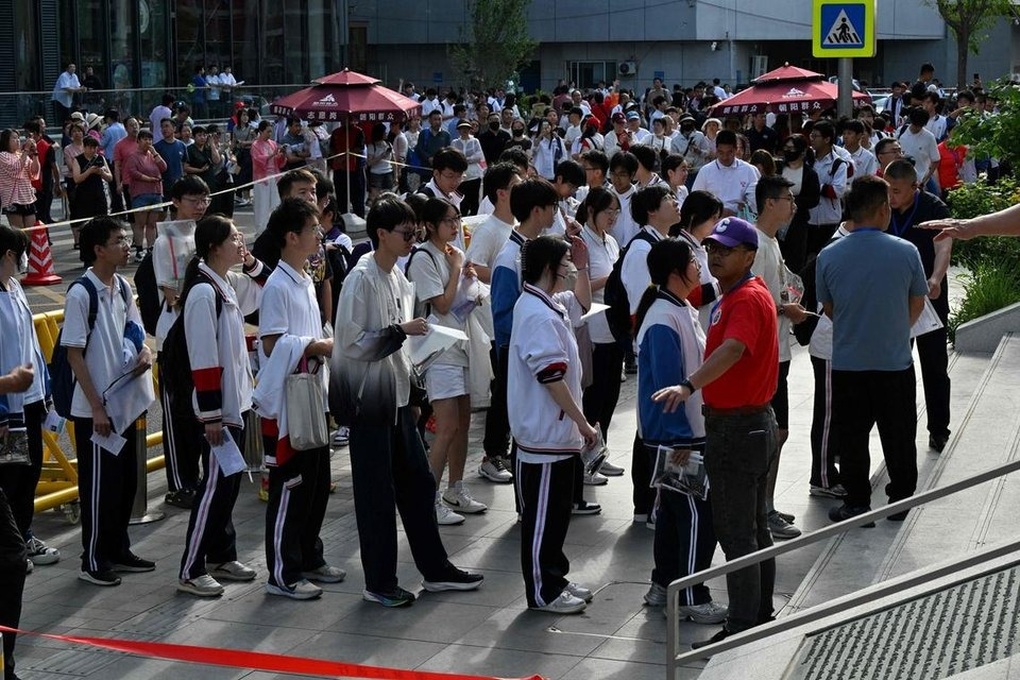
Candidates line up at a university entrance exam site in Beijing, China (Photo: GT).
According to Chinese media reports, many social media celebrities are racing to advertise college entrance exam predictions, promising to help candidates "sweep" the top positions in the admissions process.
When a social media star advertised a set of test papers from previous years and a series of predicted test papers for this year's exam, he quickly received thousands of registrations to buy the test papers.
All predicted topics are AI-generated and are advertised as using highly accurate scientific algorithms.
Social media stars also use AI to compare predicted questions with previous years' questions. The comparison results performed by AI always give almost absolute assessments of accuracy. This makes many parents and students trust and spend money to buy practice questions and predicted questions.
However, Chinese media quoted experts warning that the index assessing the similarity between the predicted exam questions and those of previous years is only based on the exam structure, so it does not reflect anything specific.
In fact, the money that parents and students spend to buy a set of prediction questions is just buying another set of questions with a similar structure, but the content of the questions can be completely wrong and cannot help candidates "hit the jackpot" as the question seller advertises.
Although the media and experts have warned that AI is not good enough to predict "right", the attraction from the promises still helps many social media stars sell sets of questions created by AI very well.
Besides the exaggerated advertising tricks on the internet, many scams surrounding the university entrance exam in China have also made many parents and candidates become victims.
Last year, Chinese authorities warned about entities that “promised” to have access to exam questions early, then asked parents and candidates to deposit money and provide personal information in order to be notified of the exam questions in advance.
The market for "lucky" goods is booming
In addition, the market for “lucky” goods also flourishes every time the university entrance exam takes place in China. All kinds of products are advertised as being able to help “pass the university entrance exam”, from feng shui items, lucky foods, functional foods, to... purple underwear with a red “tick”.
The reason why purple underwear is especially sought after during the college entrance exam in China is because of a pun in Chinese. The color purple is pronounced “zǐ”, and “buttocks” is “dìng”, which together form “zǐdìng”, which sounds similar to the phrase “zhǐdìng”, meaning “sure, guaranteed”.
Many candidates hope that wearing purple underwear will bring them “sure, guaranteed results” in the most difficult exam of their lives.
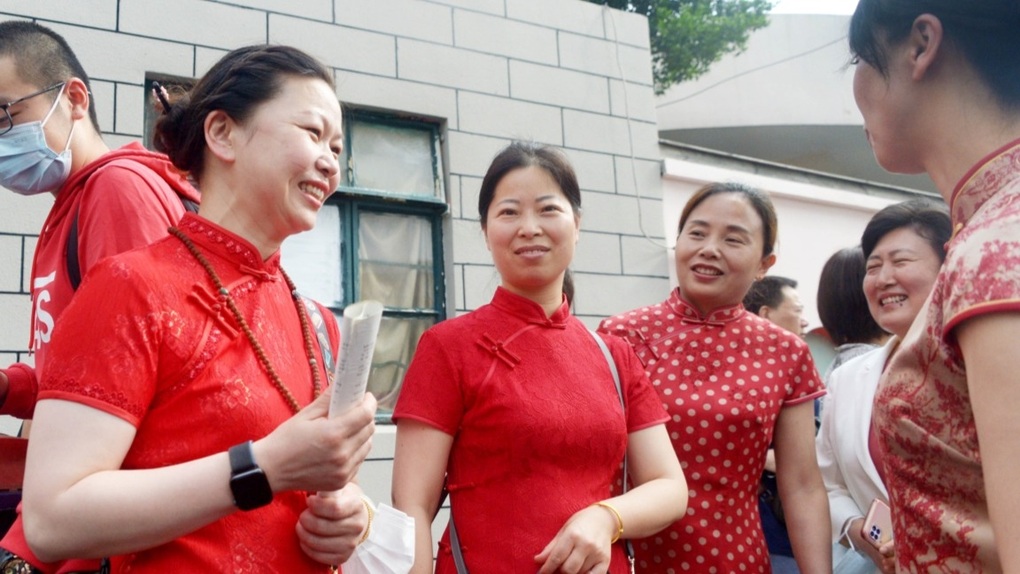
Mothers wearing red cheongsam take their children to the exam (Photo: GT).
Not only that, many mothers whose children are taking exams also wear red cheongsam on their children's exam day, so that the first color their children see when they wake up to prepare for the exam is red.
The college entrance exam in China is considered the threshold that determines the academic and career future of many young people. Therefore, searching for items with feng shui and good luck is quite common.
Although humorous and somewhat “superstitious”, these habits reflect the mentality of many candidates and their parents in China when facing a decisive exam. For them, sometimes a little lucky detail is enough to give them the strength to overcome great pressure.
Amid the AI craze and items said to bring good luck,education experts warn that no algorithm or feng shui item can replace serious, hard work.
More importantly, students and parents need to be alert to avoid becoming victims of scams and profiteering surrounding this important exam.
Source: https://dantri.com.vn/giao-duc/thi-dai-hoc-o-trung-quoc-chieu-tro-tri-tue-nhan-tao-du-doan-de-len-ngoi-20250608105233258.htm








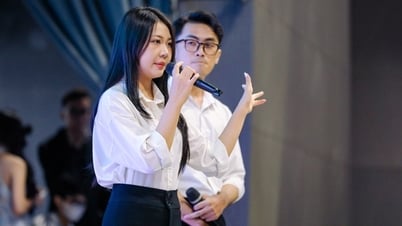

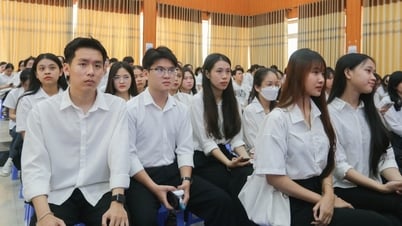

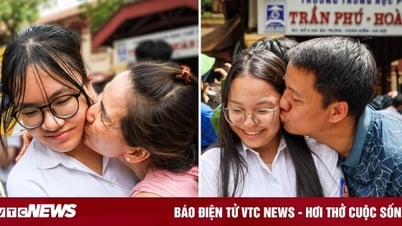




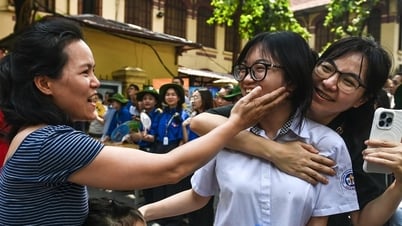




































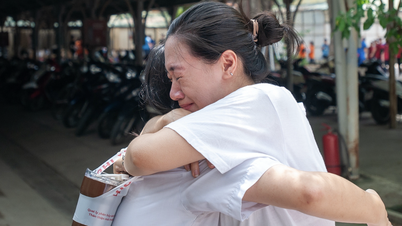

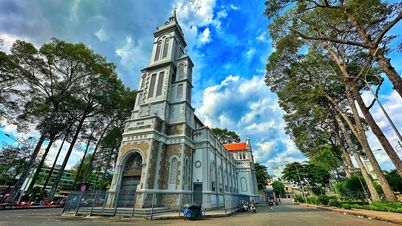












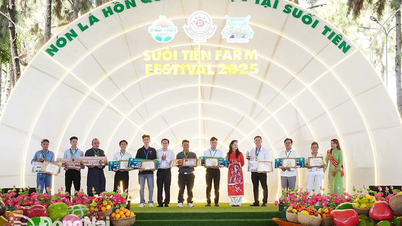
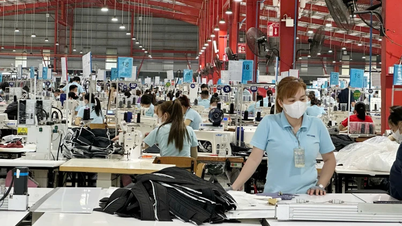

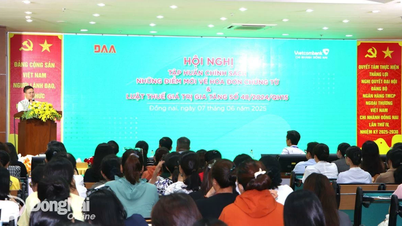


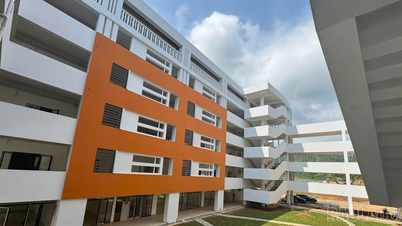








![[OCOP REVIEW] Tu Duyen Syrup - The essence of herbs from the mountains and forests of Nhu Thanh](https://vphoto.vietnam.vn/thumb/402x226/vietnam/resource/IMAGE/2025/6/5/58ca32fce4ec44039e444fbfae7e75ec)




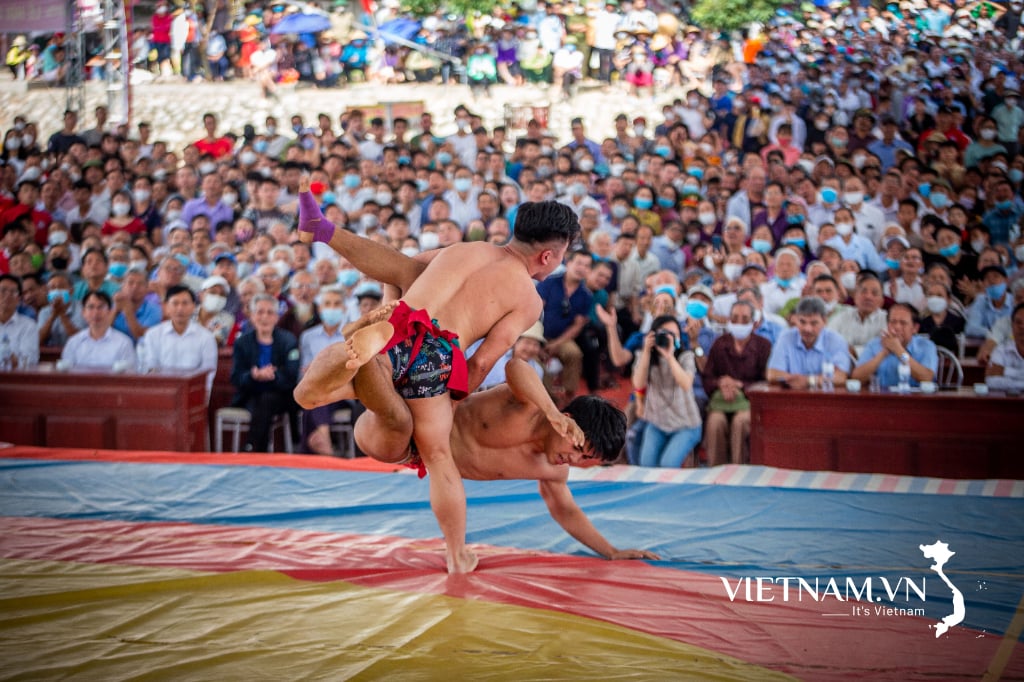
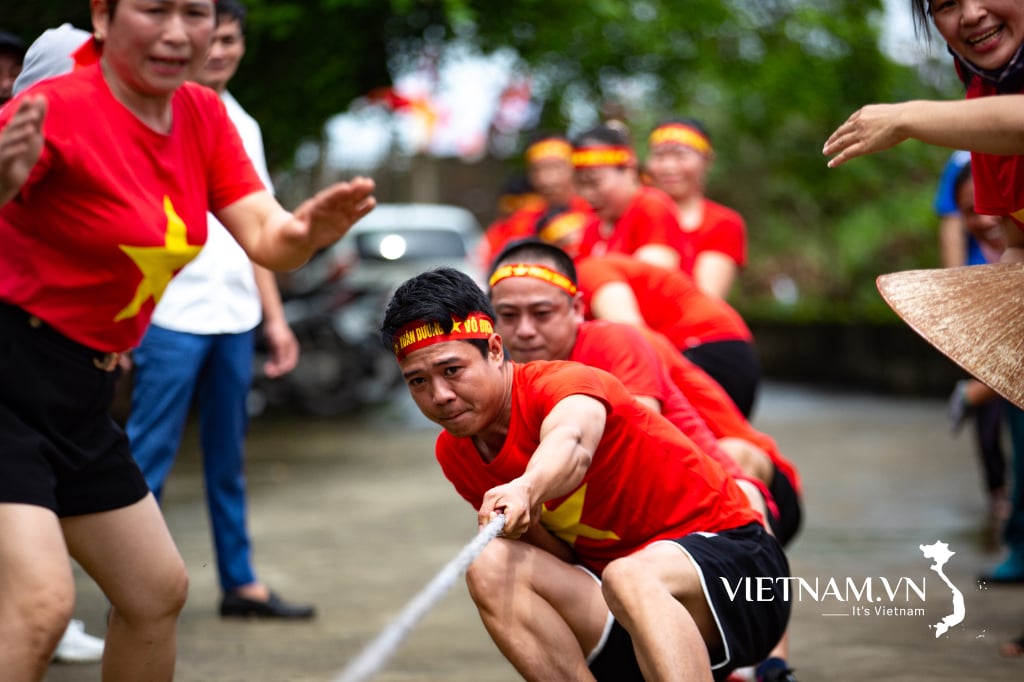
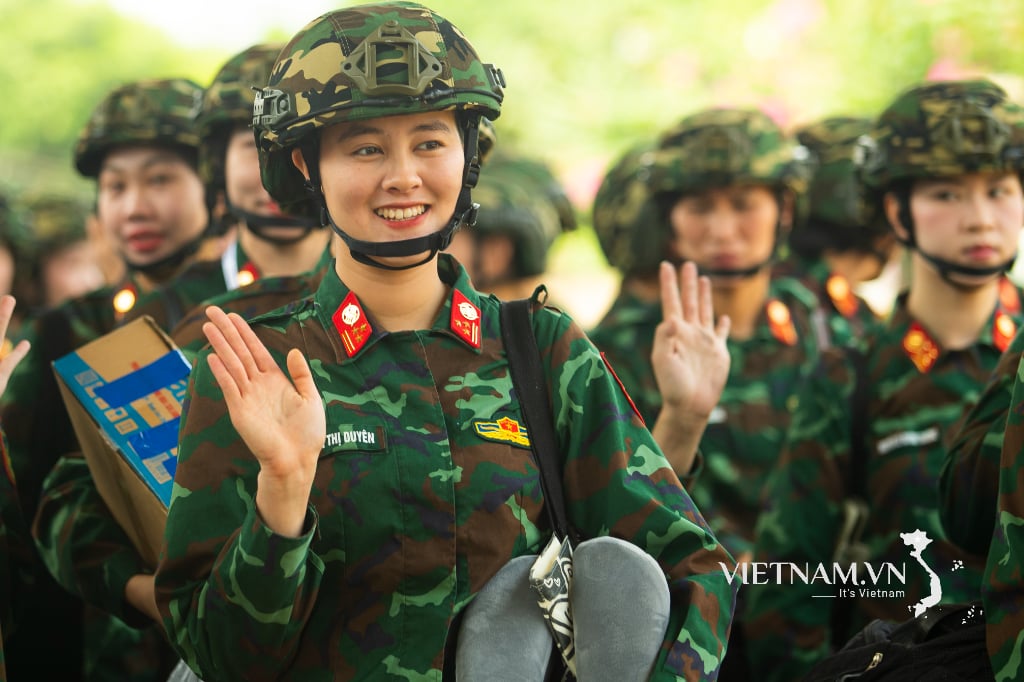
Comment (0)